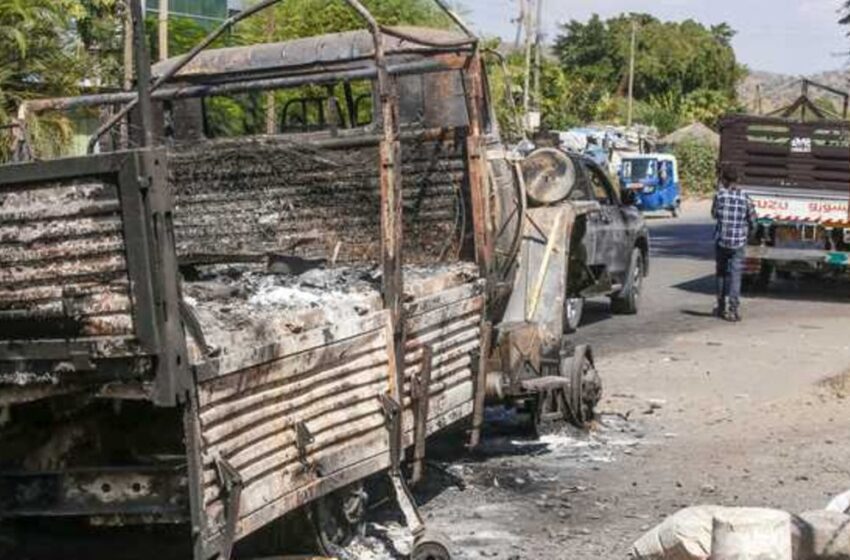
Ethiopia in image crisis over Tigray ‘atrocities’
Source: The East African
Summary
- A report by two rights groups shows how simmering tensions in western Tigray resulted in extrajudicial executions, rape, other acts of sexual violence and mass killings that saw hundreds of thousands flee to neighbouring countries.
- Ethiopia’s ministry of Foreign Affairs indicated it will look into the allegations, promising to hold anyone accountable.
- But the statement also lampooned the two watchdogs for ‘overstepping’ their mandate to address political issues in the country.
Ethiopian authorities are fighting a new image crisis amid allegations that the government of Prime Minister Abiy Ahmed is trying to conceal evidence of wrongdoing by its forces in Tigray.
Last week, Addis Ababa failed to block a budgetary approval for a team of independent UN experts tasked to look into acts of war crimes committed during the war in Tigray.
But that loss was compounded by additional findings by rights watchdogs Human Rights Watch and Amnesty International, of extrajudicial killings and sexual violations.
The two agencies said they followed the war for 15 months, studying medical and forensic reports, court documents, and interviews with over 400 victims of the fight, including those who fled to Sudan.
They implicated Amhara security forces acting under Amhara and Walqayte officials who are accused of ethnic cleansing and other crimes in western Tigray, while fighting for the government of Addis Ababa.
The report titled We Will Erase you From this Land, a phrase coined from the harrowing testimony of a victim of forceful eviction, shows how simmering tensions in western Tigray resulted in extrajudicial executions, rape, other acts of sexual violence and mass killings that saw hundreds of thousands flee to neighbouring countries.
On Thursday, Ethiopia’s ministry of Foreign Affairs indicated it will look into the allegations, promising to hold anyone accountable. But the statement also lampooned the two watchdogs for ‘overstepping’ their mandate to address political issues in the country.
“It is unwise for the activist organisations to pass judgment on such matters. They would know their report will now be used for political purposes,” the ministry said, referring to excerpts of the report that show territorial squabbles between Amhara and Tigray.
“The government is also concerned about the ethnic undertones of the report that seem to apportion blame disproportionately while trying to exculpate others. This fuels hatred and makes reconciliation and healing difficult.”
As the UN team, although opposed by Addis Ababa, prepares to launch a probe, the federal government was also facing fresh allegations of rushing to conceal evidence in the western Tigray region.
Ethiopian authorities are alleged to have been moving bodies from western Tigray to unknown destinations, a move that has since been questioned by the Tigray People’s Liberation Front (TPLF). However, these allegations came after the federal government of Ethiopia announced that a local university’s research team had uncovered “decades of old secretive” mass grave sites in Wolkait, Tegede and Telemi allegedly belonging to ethnic Amhara’s and accused TPLF of committing ethnic cleansing.
TPLF, too, denied the claims and accused the federal government of tampering with evidence of mass massacres by allegedly moving the bodies to unknown destinations.
“Western Tigray is a crime scene. This recent move by Amhara is an attempt to destroy evidence of genocide especially after UN Secretary General Antonio Guteres’ budget approval for an independent investigation by a panel of human rights experts at United Nations Human Rights Council. It is an obstruction to justice and should be stopped,” tweeted Kindeya Gebrehiwot, the Tigray People’s Liberation Front’s spokesperson.
